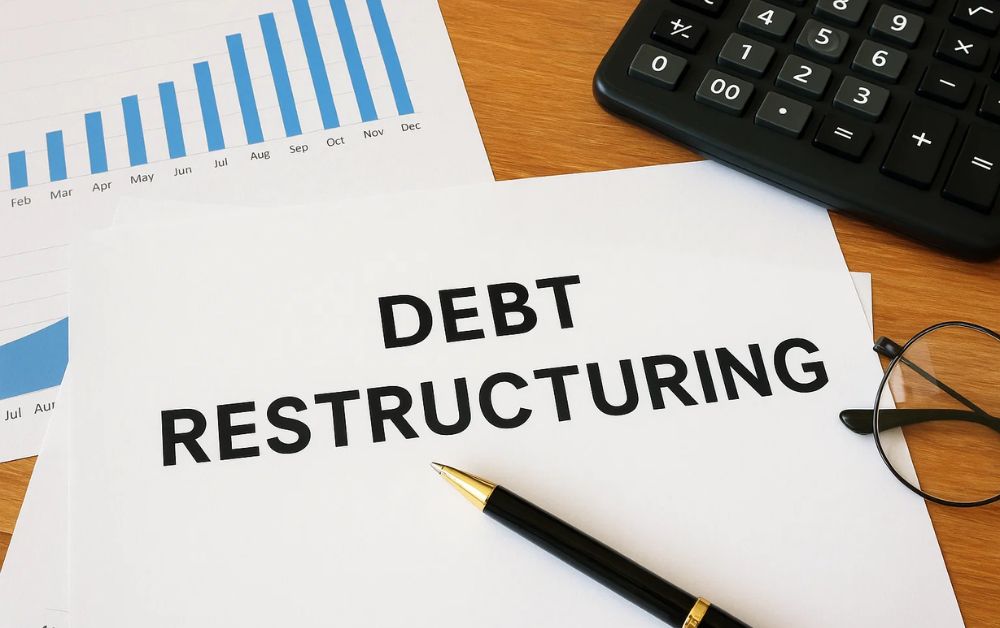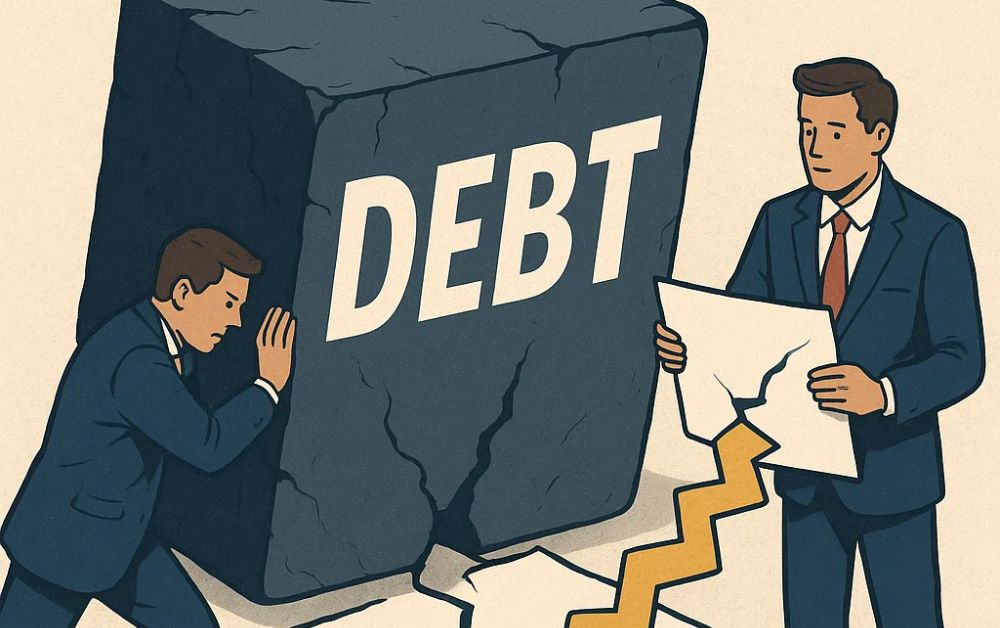Financial challenges can arise unexpectedly, whether due to job loss, business downturns, or rising living expenses. In such situations, managing multiple loans and financial obligations often becomes overwhelming. This is where Debt Restructuring Services in UAE play a critical role, helping individuals and businesses reorganize their debts into manageable repayment terms. Understanding what debt restructuring is, its benefits, risks, and common questions can help you decide if it’s the right solution for your financial situation.
What is Debt Restructuring?
Debt restructuring is a process that allows borrowers to renegotiate the terms of their existing loans with banks or financial institutions. Instead of defaulting or struggling with unmanageable installments, borrowers can work with lenders to modify repayment schedules, reduce interest rates, or extend loan tenures.
In the UAE, this process has gained popularity because of the large expatriate population and businesses that often face challenges due to economic fluctuations. Debt Restructuring Services in UAE provide professional support to navigate these discussions, ensuring fair agreements with creditors.
Key Benefits of Debt Restructuring
Opting for debt restructuring can provide a lifeline to those under financial stress. The major benefits include:
1. Easier Repayment Plans
By extending the loan tenure or reducing interest rates, restructuring makes monthly payments more affordable.
2. Avoiding Defaults
Missed payments can lead to legal action, damaged credit scores, or even travel bans in the UAE. Restructuring helps borrowers avoid these risks.
3. Improved Cash Flow
Lower monthly installments free up income for other essential expenses like housing, education, or medical needs.
4. Preserving Credit History
Unlike outright loan defaults, debt restructuring can help maintain or gradually rebuild your credit reputation.
5. Peace of Mind
Reducing the pressure of unmanageable debt provides psychological relief and allows borrowers to focus on rebuilding their financial stability.
Risks of Debt Restructuring
While the advantages are clear, borrowers should also consider the risks associated with restructuring:
- Longer Loan Duration – Extending repayment terms might reduce immediate pressure but increases the total interest paid over time.
- Potential Fees – Some banks charge administrative fees for restructuring loans.
- Temporary Solution – If spending habits or financial discipline do not improve, debt problems may resurface.
- Impact on Borrowing Power – Restructured loans may affect your ability to take on new credit in the future.
Borrowers must weigh these factors carefully before opting for restructuring.
How Do Debt Restructuring Services in UAE Work?
Professional services guide borrowers through the entire process, offering expertise and negotiation skills. Here’s how they typically operate:
- Financial Assessment – Reviewing the borrower’s income, debts, and expenses.
- Developing a Strategy – Creating a customized plan for repayment restructuring.
- Negotiation with Creditors – Liaising directly with banks to secure lower interest rates or revised terms.
- Execution – Finalizing agreements and setting up new repayment schedules.
- Monitoring Progress – Ensuring borrowers stick to the plan and avoid future financial pitfalls.
These services act as a bridge between borrowers and lenders, making the process smoother and more transparent.
FAQs on Debt Restructuring in UAE
1. Who can apply for debt restructuring?
Both individuals and businesses facing financial difficulties can apply, provided they demonstrate genuine repayment challenges and willingness to settle debts.
2. Does debt restructuring affect my credit score?
Yes, but usually in a less damaging way than defaults. Over time, consistent repayment under the new plan can improve your score.
3. How is debt restructuring different from debt consolidation?
- Debt restructuring modifies existing loan terms with the same lender(s).
- Debt consolidation combines multiple loans into one new loan, often with a new lender.
4. Are there legal protections in the UAE for borrowers?
Yes. UAE regulations promote amicable settlements and encourage banks to offer restructuring options to genuine cases.
5. Is debt restructuring suitable for everyone?
Not necessarily. If your financial challenges are temporary, it can help. But if you continue to overspend or lack income stability, it may only provide short-term relief.
Practical Tips Before Opting for Debt Restructuring
- Evaluate Your Situation – Be honest about your income and expenses.
- Consult Professionals – Expert guidance can help you secure better terms.
- Negotiate Actively – Don’t hesitate to ask for reduced interest or extended timelines.
- Stay Disciplined – Stick to your repayment plan to avoid slipping back into debt.
Conclusion
Debt is not the end of financial security—it’s a challenge that can be managed with the right approach. Debt Restructuring Services in UAE offer a practical way to regain control by easing repayment pressures, avoiding defaults, and protecting long-term financial stability. However, it’s essential to weigh the benefits against the risks and seek professional support to make informed decisions. For individuals and businesses looking for trusted expertise and tailored solutions, Global Debts Advisory shines as a reliable partner, helping clients navigate debt restructuring with confidence and clarity.





